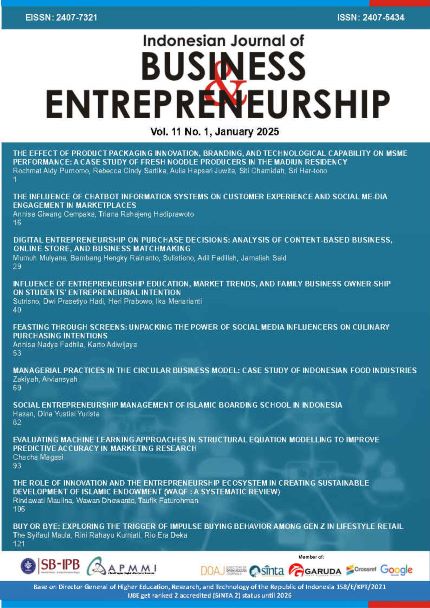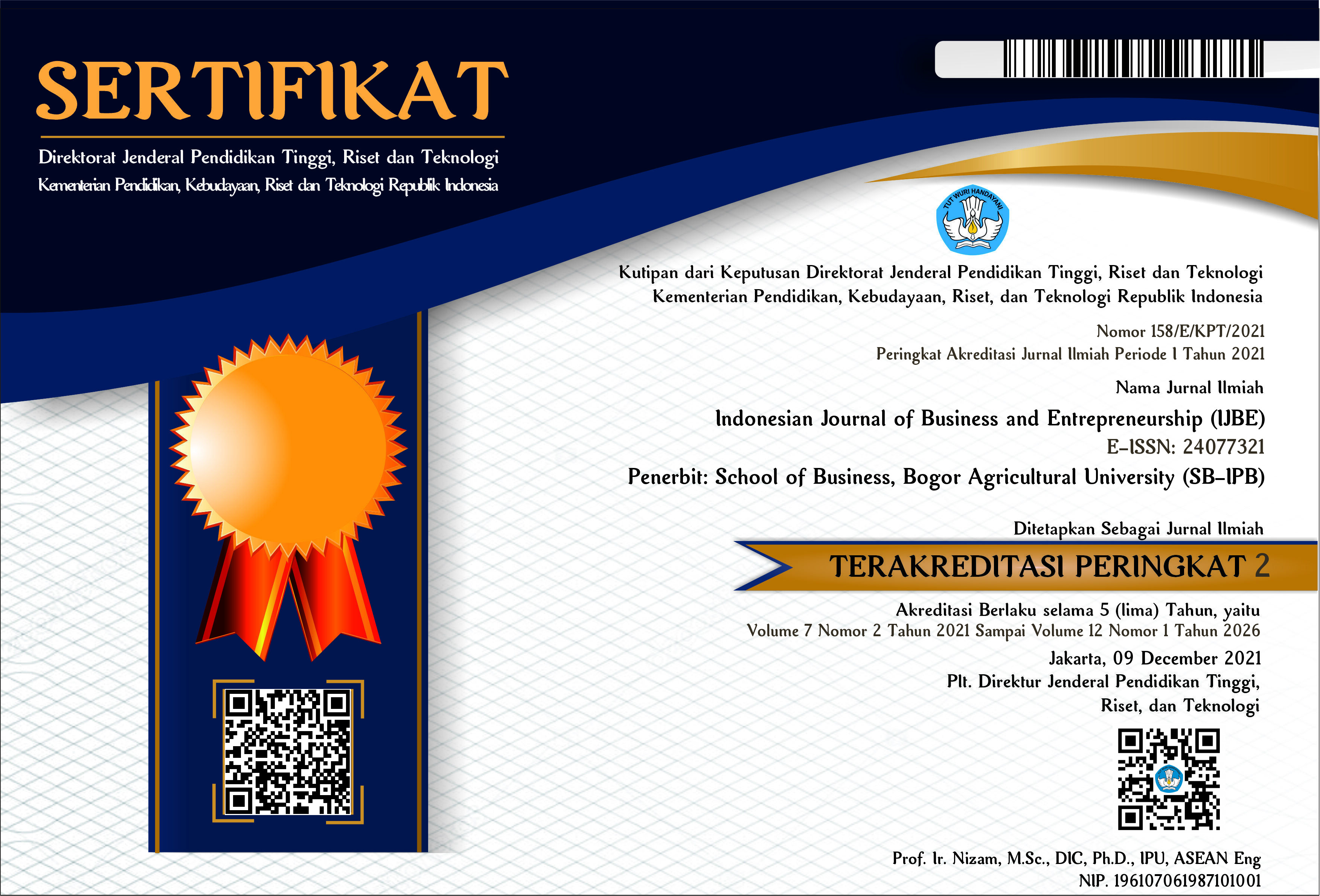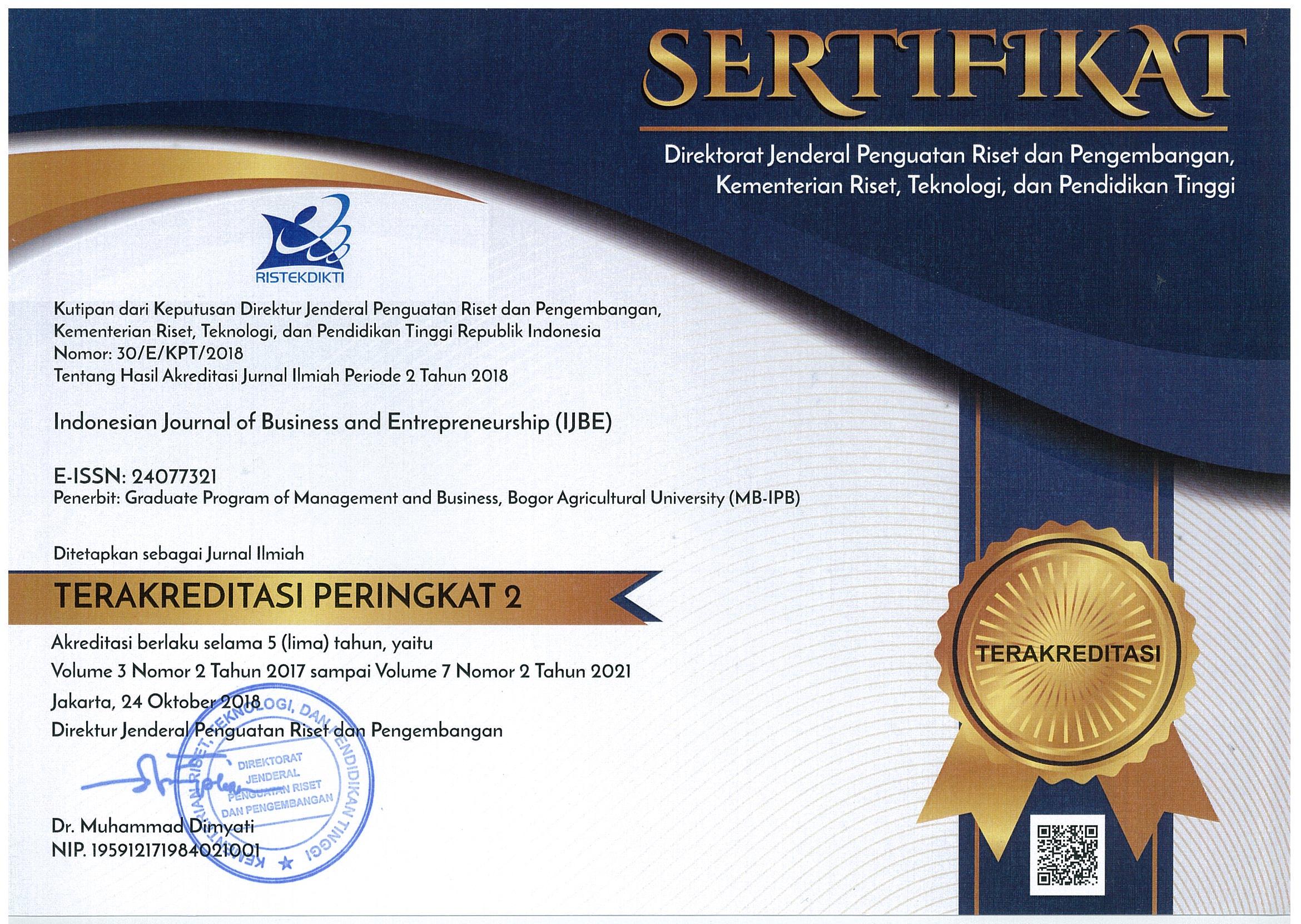Feasting Through Screens: Unpacking The Power of Social Media Influencers on Culinary Purchasing Intentions
Abstract
Background: In the vibrant context of Indonesia's growing culinary scene, food waste poses significant environmental and economic challenges, leading to a rise in consumer demand for sustainability and eco-friendly practices.
Purpose: This study examines the role of social media influencers in shaping consumption values and purchase behaviors toward sustainable culinary practices.
Design/Methodology/Approach: Data were collected from 260 respondents in Greater Jakarta using purposive sampling via structured online questionnaires, targeting social media users aged 17–43 who follow culinary influencers. The data were analyzed with Structural Equation Modeling (SEM) using SmartPLS software.
Findings/Result: The results demonstrate that environmental concerns significantly influence both social and epistemic values. Consumers who are more concerned about environmental issues perceive higher social and epistemic value in sustainable culinary products promoted by influencers, leading to increased purchase intentions.
Conclusion: Marketers in the culinary industry should collaborate with influencers who advocate for environmental sustainability to enhance the perceived social and epistemic values of their products, effectively boosting consumer engagement and purchase intentions, and contributing to reduced food waste.
Originality/Value (State of the Art): This research enriches the discourse on influencer marketing in the culinary industry by highlighting the role of environmental concerns in shaping consumers’ consumption values and purchase intentions, offering actionable insights for businesses aiming to implement sustainable marketing strategies.
Keywords: consumption value, culinary product, environmental concern, epistemic value, generation, income, intimate self-disclosure, spending self-control, purchase intention








